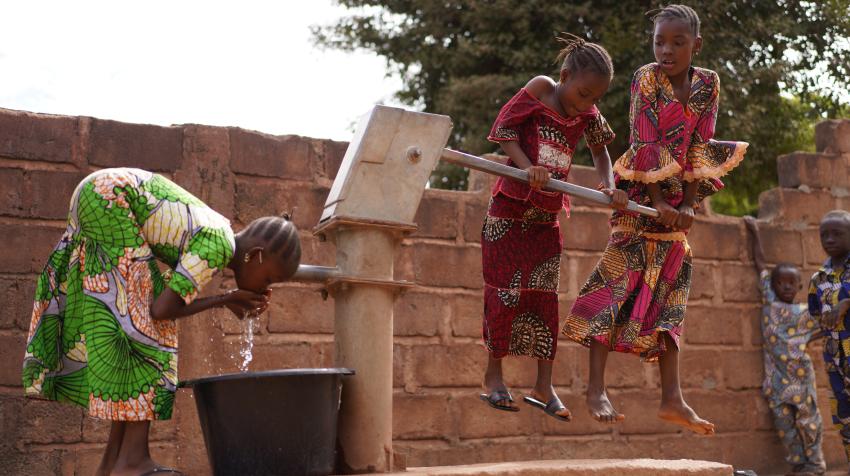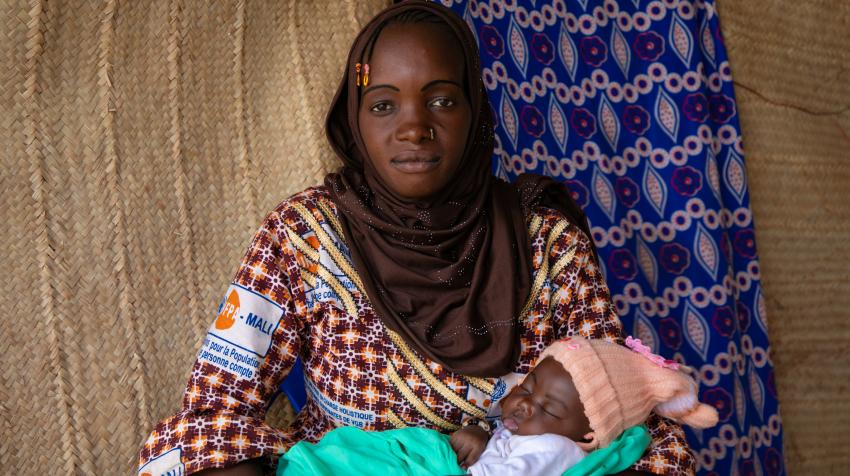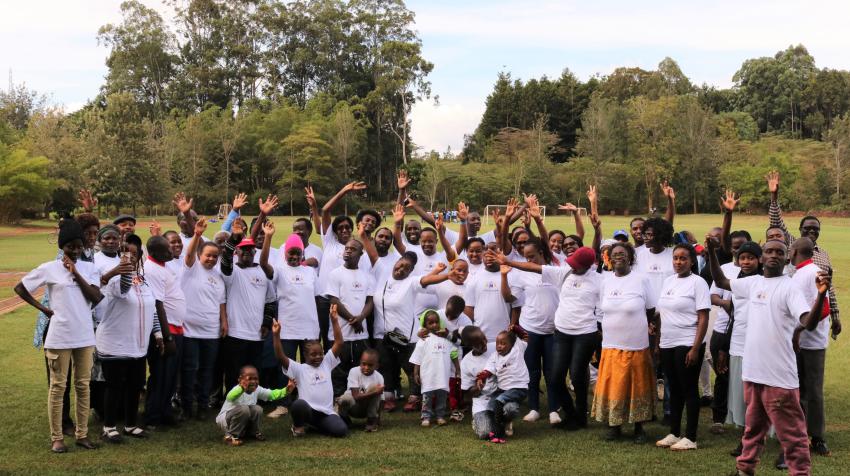22 April 2024
A multitude of stakeholders from least developed countries (LDCs) and their development partners convened for the second LDC Future Forum in Helsinki from 5 to 7 March 2024. The Forum considered the role of innovation in the structural transformation that is needed to support LDCs in reaching the Sustainable Development Goals (SDGs). The many insights and ideas that emerged during the discussions, including perspectives on digitalization, green innovations, artificial intelligence (AI) and social innovations, provided a sound basis on which the forthcoming Forums can be built.
A multi-stakeholder platform to discuss issues faced by least developed countries
The LDC Future Forum is a series of annual events organized by Finland in close partnership with the Office of the High Representative for the Least Developed Countries, Landlocked Developing Countries and Small Island Developing States (UN-OHRLLS). The aim of the Forums is to support LDCs in harnessing their enormous potential to eradicate poverty, achieve sustained and inclusive social and economic development, and advance the SDGs, as well as finding the best ways for the partners to support those efforts. The Forums bring together government representatives from world capitals and New York, representing LDCs but also many United Nations agencies, academia, the private sector, non-governmental organizations and other stakeholders.
LDC representatives, together with Rabab Fatima, Under-Secretary-General and High Representative for the Least Developed Countries, Landlocked Developing Countries and Small Island Developing States, and representatives of United Nations offices and the United Nations University World Institute for Development Economics Research (UNU-WIDER), participated in the 2024 LDC Future Forum. The event followed the Fifth United Nations Conference on the Least Developed Countries (LDC5), held in Doha, Qatar, from 5 to 9 March 2023. This year’s Forum had an exciting theme: innovation for structural transformation in least developed countries.
The challenges that LDCs face are enormous. They include poverty and debt, recovery from the COVID years, the consequences of climate change and adaptation efforts, many capacity issues, and sometimes even factors of fragility or conflict. In Helsinki, we were impressed by the professionalism and determination with which the LDC representatives address their challenges. Graduations from LDC classification may have been delayed but they will continue. We all had a chance to congratulate Bhutan for its recent graduation. Others will follow.
The desired outcome of the LDC Future Forums is the dissemination of practical and evidence-based case studies, solutions and policy recommendations for achieving sustainable development. This year, we learned that leadership and policy choices are key, based on a solid analysis of the problems at hand, and determination to find ways to tackle them. While there are no silver-bullet solutions, and every country must travel its own unique development path, analysing the progress of others may uncover important success factors that are applicable in varied contexts. Comparing experiences is at the core of the Future Forums. This notion was reflected in Under-Secretary-General Fatima’s closing remarks, in which she drew important conclusions and even a parallel between the development story of host country Finland and the LDCs by emphasizing the importance of strong institutions, good planning, gender equality, stability, education, innovation and inclusion.
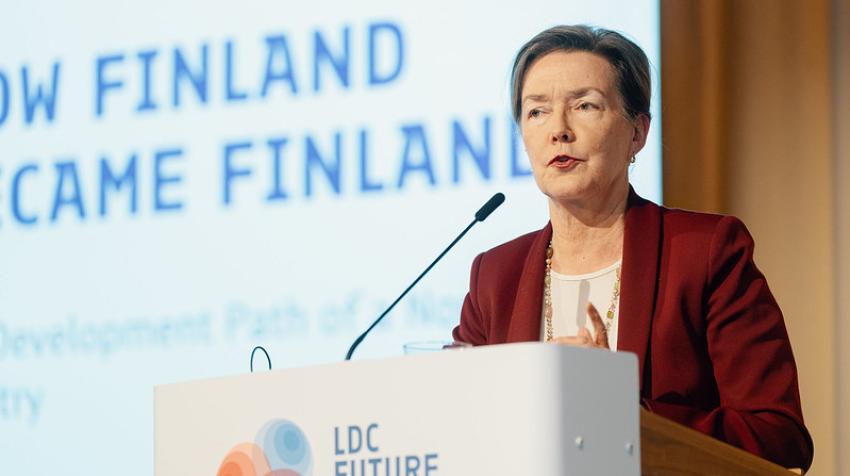
The graduation path of LDCs must be paved with consistency and follow a strategic approach drawing from evidence-based policy recommendations
The Forum’s rich discussions, which spanned three days, looked at development issues through a lens of innovation in a comprehensive manner. The importance of adopting and accessing technological innovations was made clear, as it helps to increase labor productivity in many sectors, including agriculture, which remains of crucial importance for LDCs. Yet innovations are not only related to technology: social and other innovations also play an important role. Education was repeatedly mentioned in every session. Investments in education and capacity-building were highlighted as fundamental building blocks in achieving sustainable development. Inclusive quality education enables human capital formation, knowledge production and innovation, and is therefore an important driver of sustainable development.
It was also noted that LDCs may well benefit from the “catch-up” effect: having the possibility to utilize technologies and technical know-how that are best suited for the needs of LDCs to promote sustainable economic development. Indeed, it is of critical importance that new technologies be harnessed to close the digital gap and fully leverage technology and connectivity. The Global Digital Compact, which will be negotiated at the United Nations this spring, is a chance to address digital divides. It was also highlighted during the Forum that while AI provides tools for faster sustainable development, its negative implications need also to be addressed, some of them soon. Digital tools and AI should strengthen, not weaken, the resilience of countries and societies.
Green innovations are undoubtedly the future. But the transformation process for LDC economies is a challenging undertaking considering the current state of affairs, in which most LDCs specialize in labor-intensive, low-technology manufacturing or natural resource extraction. LDCs have the potential to go green, but they lack the necessary physical, financial and human resources to do so, and they must be able to close the skills gap to enable green transition. These are indispensable building blocks for impactful and transformational policies.
While the leadership, of course, needs to be in the hands of LDCs, it was underlined that partners, donors and international institutions can and must do their share. Official development assistance can play a transformational role. For investments, blended financing and bringing the private sector along are of key importance. International support measures such as preferential market access and development finance instruments, while badly needed, have not been made sufficiently available. This has impeded the ability of LDCs to attend to their structural vulnerabilities.
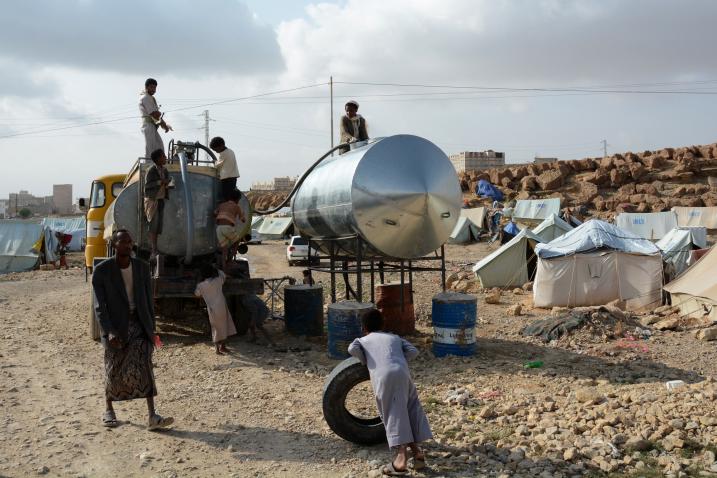
Moving forward
While the delegations at the United Nations are negotiating the new Pact for the Future, to be adopted in September 2024 at the Summit of the Future, the question of foresight also came up during the Forum. The Permanent Representatives visited the Committee of the Future at the Parliament of Finland to find out what role parliaments could play in planning how to approach salient future issues. Perhaps more parliaments could set up such a committee; they could even exchange views through interparliamentary cooperation, both regarding foresight and shared ideas on how to address our common future challenges.
As the Nordic countries, including Finland, tend to be classified at the top of a number of international comparisons and indexes—including those measuring stability, education, competitiveness and even happiness—not many people in these countries reflect on the fact that theirs were not always rich welfare societies. Quite the opposite was the case. Finland, the host of the LDC Future Forum, was once a poor developing country, defending its existence in a geopolitically dangerous region and cold northern climate. In retrospect, it has been interesting to analyse what worked and what didn’t in the journey of Finland from a fragile, almost failed State to being one of the least fragile countries in the world, according to the Fragile States Index published by the Fund for Peace. Many innovations, including social innovations, and trial and error paved the way forward for the Nordic countries. Learning not only from the successes, but also from the failures, was essential. Lack of adequate resources was always an issue. As a final thought, if there was one expression of the core strategy of a number of coalition governments during the path to development, stability and resilience, it was to “leave no one behind”—politically, economically or socially.
In the coming years, the LDC Future Forum will follow the agreed-upon rotation, by which the venue will alternate between Finland and an LDC. While the outcomes of this year’s event are still being processed, the focus is already turning to Zambia, the host of the next LDC Future Forum in 2025.
The UN Chronicle is not an official record. It is privileged to host senior United Nations officials as well as distinguished contributors from outside the United Nations system whose views are not necessarily those of the United Nations. Similarly, the boundaries and names shown, and the designations used, in maps or articles do not necessarily imply endorsement or acceptance by the United Nations.

